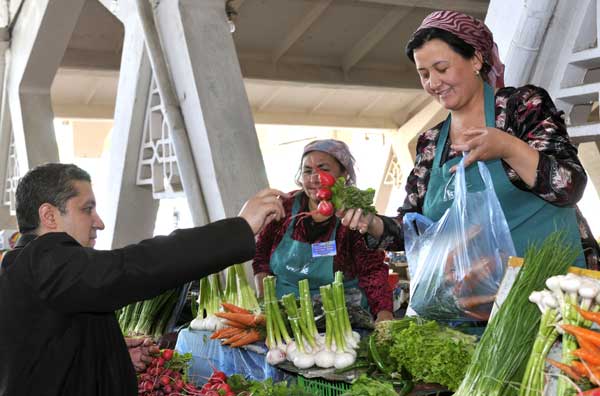ECONOMY
Contemporary geopolitical conditions may allow Uzbekistan to additionally benefit from the exports of green produce. Above all this is to do with the recent ban imposed by Russia on the import of fruits and vegetables from the EU, USA, Australia and Norway. Experts rightly suggest that the niche markets should not remain empty. Russian companies are already selecting new partners whereby Uzbekistan is frequently mentioned.
It has been a while since the government agricultural sector began actively developing its export deliveries to the CIS markets, particularly to Russia. However, the potential of the agricultural sector is simply incomparable to the volumes of exports. Foreign markets have long known Uzbekistan for its grapes and apples, apricots and pears, cherries and plums, queen apples, melons and cucurbits crops. The growth of exotic fruits such as figs, pomegranates, date plums and others also takes place in the country. According to expert valuations, today’s agricultural sector produces 16 million tons of horticultural produce. Since independence, the country generated $5 billion from fruits and vegetables. The last three years especially have seen the exports of agricultural produce increase more than threefold.
However, these numbers can be substantially greater. The main problem here is not the lack of output volumes but the insufficient branching out of the infrastructure accounting for exports in horticultural produce. It is important to understand that the food industry has its own specifics. It requires special means of storage, temperature controls, packaging, refrigerated trailers and carriages and many other variables. These later mentioned means still have some space to develop for Uzbekistan.
Despite significant movements in this sector, national companies still do not have all the necessary infrastructures. Modern resources and technologies that keep produce fresh, for instance, shock freezing and storing in neutral gas are still not possessed by the industry. Although this is the case, much work is being done to obtain such means. In the last few years 274 modern horticultural produce refrigerating and storage chambers, with a total volume of 190 thousand tones, were serviced. There are newly adopted neutral gas storage capacities, reaching more than three thousand tons of horticultural produce, being put into use within the Navoi Free Industrial Economic Zone. These amounts are then transported by airfreight into the European and Asian markets. The first half of 2014 on its own saw the creation of 29 new refrigerating chambers that can store a total of 13.5 thousand tons of horticultural goods. There are altogether more than 1,300 storage chambers that can hold over 630 thousand tons of fruits and vegetables. Each year they get filled with the main types of horticultural produce. This allows securing stable internal market prices and guarantees the supply of export deliveries during the winter-spring season.
«Uzbekistan Today» newspaper


























